Remembering victims of Soho’s pub nail bomb outrage of 1999
Adrian Zorzut of the Local Democracy Reporting Service spoke to people as the 25th anniversary of the attack approaches…
Friday, 19th April 2024 — By Adrian Zorzut LDRS
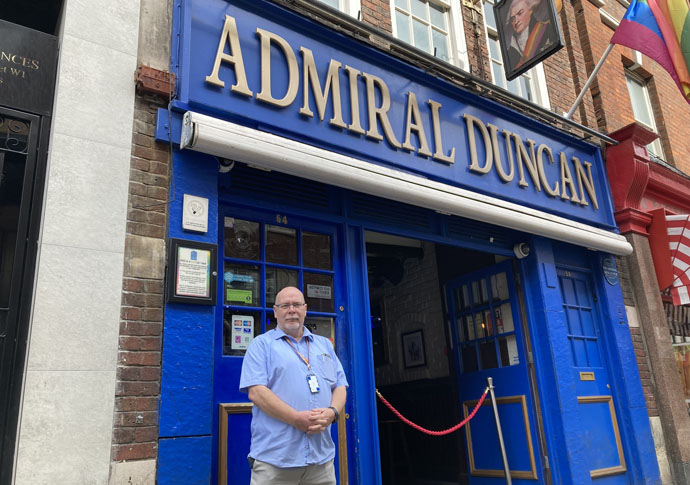
Labour councillor Patrick Lilley, above, is now the LGBTQ+ champion for Westminster City Council [Adrian Zorzut LDRS & portrait courtesy Mark Tullett]
IT was a warm late-April evening and the Admiral Duncan pub in Old Compton Street was filling up fast.
Drinkers were keen to kick off the bank holiday weekend in Soho.
Music blared, people got lost in conversation, the bar was getting busy. Everyone was beginning to unwind after work.
Unbeknown to them, a self-confessed neo-nazi had placed a bomb laced with nails at the foot of the bar.
As the 25th anniversary of the 1999 terrorist attack draws near, survivors and community members have spoken about that horrific day.
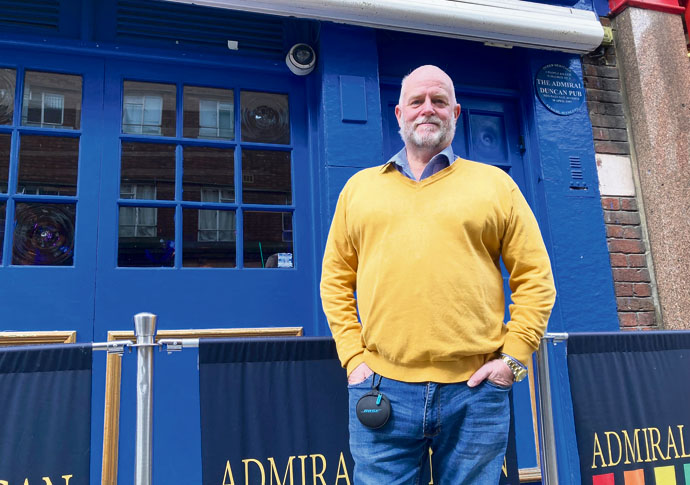
Gary Fellowes (above), 65, was sitting at the back of the bar when the bomb exploded.
He said if a friend hadn’t stopped him for a chat, he would have probably died, and added: “I was about to go to the bar to get a drink when a friend introduced me to a friend of his and I thought ‘I can’t be rude. Let’s chat for a few minutes before I go and get a drink’.
“It must have been what saved me because the bomb was at the bar.”
The next thing he remembers is seeing a bright blue light flash. He said: “I thought someone had spilt beer on the jukebox and caused it to smoke up. But the next thing I knew was there was this deafening silence and the smell of sulphur. There was so much smoke swirling around and that’s when I knew it was a bomb.”
Patrick Lilley, West End ward city councillor, 64, ran a gay nightclub in Brixton and recalled hearing about the bombing over the radio.
Cllr Lilley said: “Like so many people who have been bullied in their lives, you have a pretty sensitive heart for these sorts of incidents… So many LGBTQ+ people have experienced that.”
He said the bombing only encouraged him to campaign harder for LGBTQ+ rights and was partly behind his decision to go into politics.
He is now the LGBTQ+ champion for Westminster City Council.
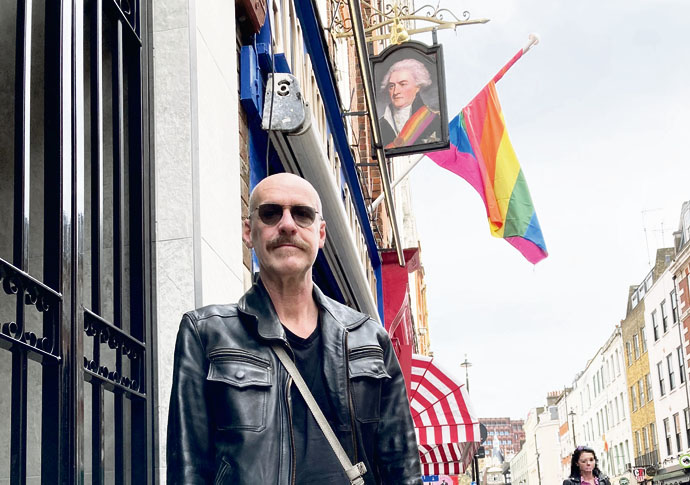
Richard Torry (above), 64, remembers being ordered out of his Old Compton Street flat by police.
Mr Torry, who has lived on the busy London street since 1980, said he walked past the pub moments before the explosion.
He said: “I thought it had gone off in Leicester Square because it was so loud.” He realised later that the explosion had echoed off the buildings. “I looked out the window and saw people running down Wardour Street. I thought they were running away but they were running towards it,” he said.
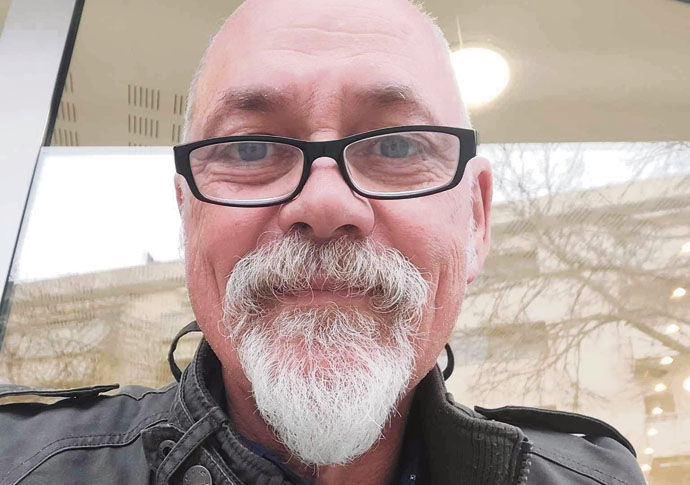
Mark Tullett (above) was also standing at the back of the bar in the Admiral Duncan when the bomb exploded.
Almost 25 years on, Mr Tullett said he is “very aware” of packages being left out and added that he scopes out the place “to make sure there are no threats”.
Every anniversary, he calls Kath, the friend who was at the bar with him that evening.
He said: “We have a little chat about it but we prefer to forget about it because some of the memories that night were quite horrific, which is why I don’t want to talk about it, because it gives me panic attacks.”
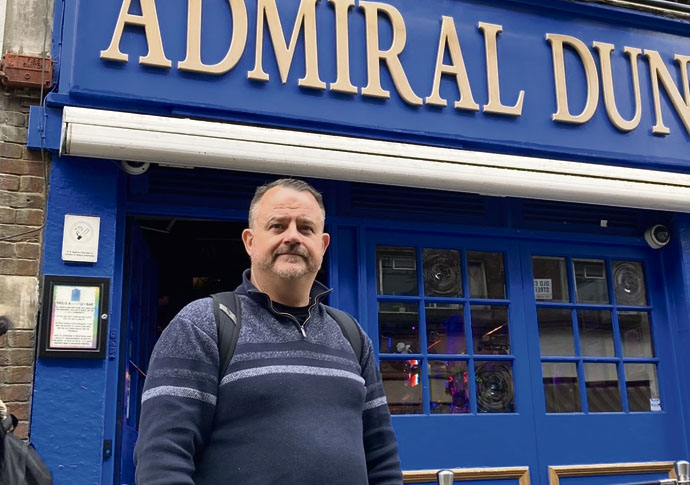
Mark Healey (above) runs the anti-hate crime charity 17-24-30 National Hate Crime Awareness Week.
The charity holds remembrance services for the bombings every year and has the dates of each bombing within its title: Brixton on April 17, Brick Lane on April 25 and the Admiral Duncan on April 30.
He said: “There is initial shock and horror and outrage but then there’s a desperate need to turn something bad into something good for the community.
For terrorists, he said: “The biggest deterrent… is knowing they will make our community stronger in the long run.”
The nail bomber David Copeland’s terror attack resulted in the deaths of three people and injuries to at least 70 more at the pub.
He was arrested shortly after the bombing and he would go on to admit the killings.
He was sentenced to six life sentences in 2000 for three counts of murder and three counts of causing explosions in London in order to endanger life.
When police raided his home, they found a Nazi flag hanging on his bedroom wall along with clippings of the newspaper coverage of his attacks.
• To remember those killed in the Admiral Duncan attack, on April 30 there will be a procession from the pub to nearby St Anne’s Gardens in Wardour Street.